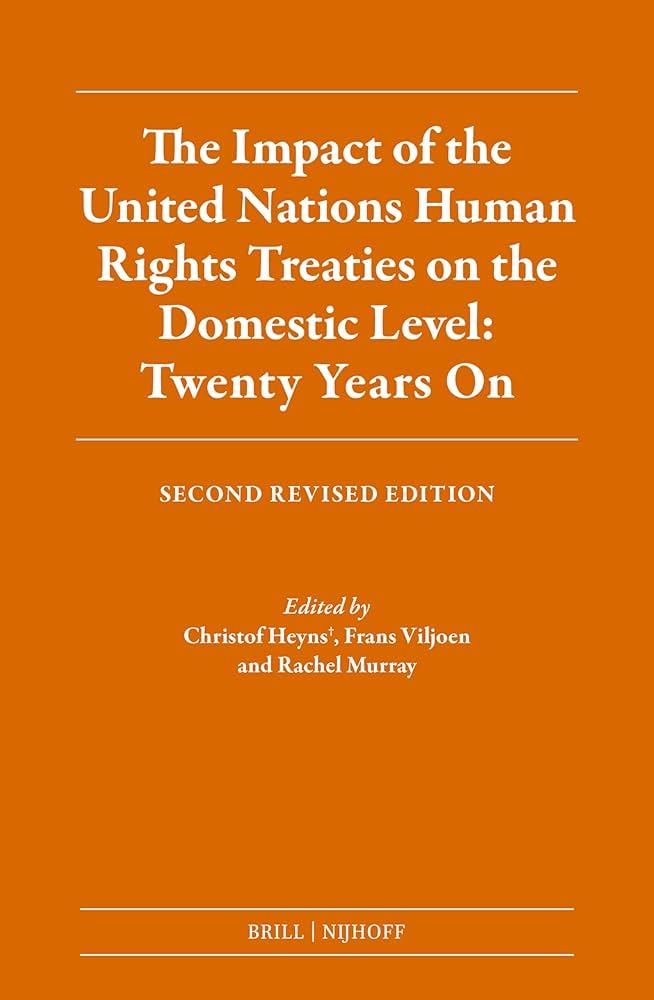Study: The weak human rights expertise of Finnish decision-makers and authorities worries experts
3.4.2024

Obstacles to the implementation of the rights guaranteed by the UN human rights treaties in Finland are mainly related to lack of awareness and competence, political selection in the rights that will be implemented, randomness in actions, lack of understanding of the state's responsibility for non-state actors, undermining treaty monitoring bodies and the lack of a national human rights strategy and monitoring mechanism.
A study on the national effectiveness of UN human rights treaties
Broad knowledge and effective national implementation of the human rights guaranteed by UN human rights treaties is essential for the existence of the entire international human rights system. During the last 20 years, many things have happened in the world that affect human rights: the increasing securitisation of societies, the rise of populism and authoritarian leaders, the narrowing of the space for civil society and the belittling of the importance of researched information, and the general inequality of people. However, this report does not reflect the effects of these, at least not directly.
The recently published study examines the impact of the UN human rights treaties in 20 countries[1]. There are nine human rights treaties that are included in the study[2], of which Finland has ratified all the others by 2024 except the agreement on the rights of migrant workers. The report does not include the Convention against Involuntary Disappearances, which entered into force for Finland on April 23, 2023.
Each country is covered by its own paragraph. All paragraphs are divided into six parts. Parts one and two present the human rights situation of the country in question and the state's relationship to the human rights system in general. The third part presents the participation of the country in question in tabular form. The fourth section provides an overview of the implications of human rights treaties on a treaty-by-treaty basis, including key issues that are examined more fully in section five. Sixth part contains conclusions.
Background
The first UN human rights treaty, the International Convention on the Elimination of All Forms of Racial Discrimination, came into force internationally in 1969. In 2001, at the initiative of the Office of the UN High Commissioner for Human Rights, an extensive work was published on the effects of the recommendations given by the UN human rights treaties and the committees supervising their implementation on the human rights situation in 20 states within 30 years, in 1969-1999. In 1999, there were six UN human rights treaties and 80 percent of them had been ratified worldwide. Every UN member state had ratified at least one of these treaties. Sanna Hyttinen prepared the study at the time with regard to Finland.
The Human Rights Centre started in 2019 in an international cooperation project of the University of Pretoria, the aim of which was to update the work from the last 20 years (1999-2019), in the same 20 countries. At that time, the number of treaties had risen from six to nine.
The publication of the book resulting from the project was delayed due to the sudden death of the project's driving force, Professor Christof Heyns, in the spring of 2021. The work was published online in March 2024 with an open access license. A printed version of the book is also available.
Process
Finland's part was written and the related research was done by OTT, DES, human rights lawyer and corporate responsibility expert Merja Pentikäinen on an assignment for the Human Rights Center.
A total of close to 30 experts in human rights and the human rights treaty system were interviewed I the process. They represented the national human rights institution (Human Rights Centre and parliamentary ombudsman), ministries (Ministry of Justice and Ministry of Foreign Affairs), the judiciary (Supreme Court), parliament (Constitutional Law Committee), universities and independent researchers, non-governmental organizations, advocates and jurists. The information service of the parliamentary library provided material from, among other things, parliamentary documents and parliamentary debates in which UN agreements have been mentioned.
A summary in Finnish of the main findings of the Finnish contribution, compiled by the Human Rights Centre, is attached.
Contact information
Merja Pentikäinen, firstname.lastname@opiniojuris.fi, 040 566 6695
Leena Leikas, firstname.lastname@humanrightscentre.fi
Impact Study - news and summary of findings EN
Read more:
Chapter on Finland https://brill.com/edcollchap-oa/book/9789004377653/BP000009.xml
Conclusions on the entire report https://brill.com/edcollchap-oa/book/9789004377653/BP000022.xml
2001 publication online only as paid version https://brill.com/edcollbook/title/10873
[1] Australia, Brazil, Canada, Colombia, Czech Republic, Egypt, Estonia, Finland, India, Jamaica, Japan, Mexico, Nepal, Poland, Senegal, Spain, South Africa, Turkey, Zambia
[2]International Convention on the Elimination of All Forms of Racial Discrimination (1965), International Covenant on Economic, Social and Cultural Rights (1966), International Covenant on Civil and Political Rights (1966), Universal Convention on the Elimination of Discrimination against Women (1979), Convention on the Elimination of All Forms of Torture and Other Cruel, Inhuman or Convention against Degrading Treatment or Punishment (1984), Convention on the Rights of the Child (1989), Convention on the Rights of Persons with Disabilities (2006), Convention for the Protection of All Persons from Arbitrary Disappearance (2006)